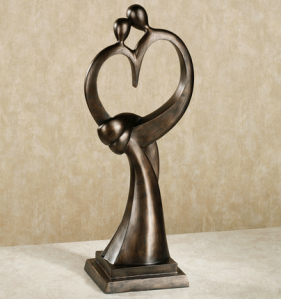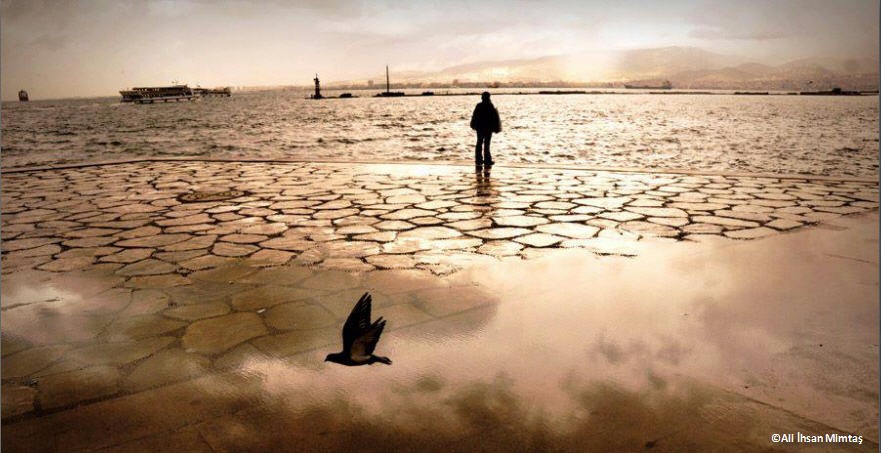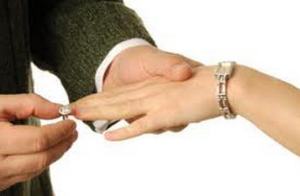
Photo credit: http://www.touchofclass.com
Earlier this week I shocked one of my youngest colleagues, when she asked me what I thought of the male character in 7.39, a BBC drama in which a married man and an engaged woman meet on their commuter train to London and embark on an affair. I had told her it was not an improbable situation and I didn’t feel at all critical about his actions.
The colleague, who is in her mid-20s, thought it was unforgivable for a married man to be unfaithful to his wife just because he was bored with life/having a mid-life crisis.
When an affair happens, there is usually far more to it than just a man and a woman in crisis seeking solace/refuge/fun; there isn’t a simple right or wrong. In my 20s, however, I would probably have reacted the same way, as I too used to naïvely believe in fairy tale romances, Prince Charming, and the existence of “The One” – the perfect man or woman with whom you will walk hand-in-hand into the sunset…
What a shedload of bollocks!
This excellent article in the young people’s sex ed site BishUK.com sensibly explains why believing in “The One” can make our own lives harder, make us overly dependent on our partners as our central source of happiness and validation, or trap us in relationships even when they are making us miserable.
On days like Valentine’s Day, it can also make you feel like a failure if you are single because the opposite of having “the One” would be having “zero”, as if not being in a relationship was the most tragic things that could happen to anyone.
The One myth
Someone we fall in love with or fancy may temporarily feel like “the One”, but life circumstances are not static, and, most importantly, we are not static, so how can there only be a single “the One”?
The author, Justin Hancock (@bishtraining on Twitter) rightly says:
“[…]there isn’t just one ‘One’ – but hundreds, thousands or millions of ‘Ones’ all over the place.”
We change on a daily basis. We are influenced by what we see, hear, read, what happens in our commute (ahem..7.39), people we meet, conversations we have, what happens at work, things we remember.
Our needs also shift with time. After a complex and difficult relationship, we may seek relief in an uncomplicated one with an undemanding, easy-to-please partner. But over time this partner’s agenda may also change to one where expectations are of a firmer and more demanding commitment, which may then tip the relationship’s balance; what was easy-going and fun suddenly becomes too serious and uncomfortable for the other.
Is monogamy for me?
If circumstances and people are always changing and relationships constantly reach a crisis point as a result, how can anyone ever be happy in a long-term stable relationship, you ask?
Tauriq Moosa points out in this Guardian column, Dissecting Relationships, that monogamy and the one-partner-for-life model do not occur in the majority of mammals in the animal kingdom. That is not a justification for us humans to become serial adulterers, but if you look at those who call themselves polyamorous, with multiple lovers in open, mutually consenting and satisfying relationships, we can conclude that monogamy is not necessarily the only path to achieving happiness in love.
Even knowing monogamy goes against our animal nature, we can still consciously choose to have a long-term, faithful partnership with a single lover, produce children, and be the “happy family” society expects us to be part of. But that decision, in order to be lasting, should be taken from a place of openness, honesty and maturity from both parties.
Moosa says:
[…] this is showing we genuinely care about our relationships and our partners: we care enough to treat both with the proper adult respect they deserve, talking about deep, hard truths – not bombarding with Valentine’s gestures. If a relationship can’t survive such important discussions, then perhaps it’s a relationship not worth wanting – and then we’ve done ourselves a huge favour in seeing that now, rather than later.
The line between love and relationships
Having been through marriage and separation, I have discovered the following:
1. not believing in a “One” worked against me; when my (ex-)husband proposed, I was convinced there wasn’t a “One” for me. If I didn’t say yes then, I reckoned no other man would ever love/marry me, so I compromised.
2. once you go through an unhappy/traumatic/abusive marriage/relationship followed by a not-so-amicable separation, it takes a long time for you to recover your faith in relationships again.
3. it is possible to love, and enjoy love, without being in a conventional romantic relationship.
Let me elaborate on point 3. Although love and relationships are often used together in the same phrase, and we grow up thinking they are inseparable concepts, I have come to understand, and personally experience, that one can exist without the other.
I thought I was rather abnormal, or at least far too unconventional in my way of thinking, until I read this wonderful blog post, Casual Love, by songwriter Carsie Blanton. It made me insanely happy to find out I am not the only one who thinks it is okay to love outside the context of formal relationships.
Imagine if you could say to a casual partner, “I love you. It’s no big deal. It doesn’t mean you’re The One, or even one of the ones. It doesn’t mean you have to love me back. It doesn’t mean we have to date, or marry, or even cuddle. It doesn’t mean we have to part ways dramatically in a flurry of tears and broken dishes. It doesn’t mean I’ll love you until I die, or that I’ll still love you next year, or tomorrow.”
Despite advocating a casual kind of love, Blanton does not discount the possibility of a long-term commitment:
“…dating, marriage, cuddling, etc – are options, and there are an infinite number of other options (Skee ball, sailing around the world, double suicide). These are all things you can now choose or not choose, as two conscious adult human beings. The important distinction is that none of them is implied just by saying the word ‘love’.”
Love for the sake of love
This ties in nicely with what Moosa says in his piece, basically that committed relationships, marriage,etc are options for grown-up men and women in love, not a compulsory final destination. Why can’t we love for the heck of it? For people like me, still nursing wounds from an emotionally abusive past, the simplicity of it feels like the perfect “groovy kind of love” as Phil Collins would say.
To love in this way is no different from when you love within a relationship.
The other day, while I was away on a business trip, I helped edit a CV for a friend, who I knew had been having a tough time since being made redundant last autumn. I was working all hours of the day and night, hardly managing to squeeze in four hours’ sleep a night, but I still worked on his CV for 15-20 min each evening until I passed out with exhaustion. This went on over almost two weeks with comments and counter-comments going back and forth on email between us until the CV looked shipshape.
My friend – actually an old flame – was so grateful for the help and pleased with the results, he jokingly said I should start an HR consultancy business. “You fool,” I thought, “Don’t you know I only did this for you because I love you.”
He possibly does (know). It doesn’t matter because we have both moved on in different directions, and he is now a father and a husband. It doesn’t matter because time, distance, marriage, kids, none of these things made us stop caring about each other.
I do not wish to ‘own’ him, or claim him from his family; it is not a grasping kind of love. There are no expectations, except I want him to be happy; even if not with me.
Loving casually, loving truly
He is not the only man I love in this way; there are others.
All my life I sought what most people expect from love – loyalty, commitment, attention, gifts, dates – only to find disappointment in the end. The problem was I did not love myself first and was always expecting someone else to meet my emotional needs.
But now…now I enjoy my own company, am happy being single and do not need a relationship to make me feel attractive, valued or wanted.
Loving without following a rule book is liberating and empowering. Relationships become an option rather than a target destination, so you can focus on the love itself rather than on the superficial things that you thought represented love: flowers, sex, meals at posh restaurants, expensive rings, talks about marriage.
I love because I met a guy (this applies to any man) who is intelligent, cultured, and has great conversation, who makes me laugh and thinks I’m funny too; someone who shares many of my interests, my quirks, my dirty secrets. Someone who doesn’t mind my filthy mind and my straight talking. Someone I can be myself with; someone who is always himself with me, and we still like each other like that. Someone I can freely cry and laugh with without feeling ashamed.
I love even though we part and always go our separate ways. I love because even when we’re apart, we’re together, in our thoughts, our energies, occasionally in dreams, and that suffices. For now. I am still healing, still learning to love – and trust – again.
Sometimes I wake up from a dream and cry because I miss him so much, because I miss being in love.
It has been so long since I truly loved. This may be my Sehnsucht, my yearning for the unknown.
The Casual Love blog concludes:
“I suggest we take a page from the casual sex book [….] lift some of the weighty grandiosity off the shoulders of love, and allow it to be what it is: a sweet, ephemeral, exciting feeling to experience and share.”

